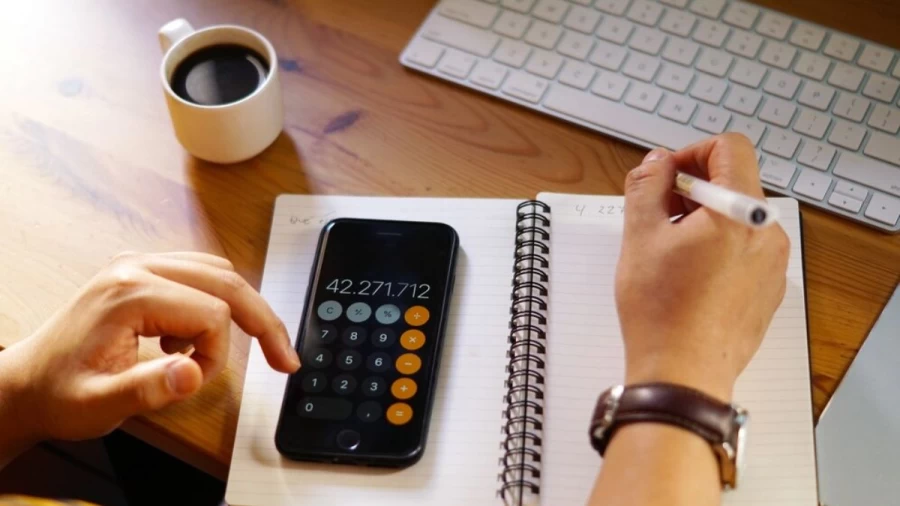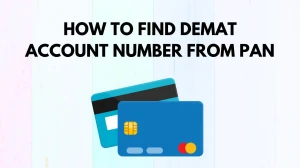
How to Balance Checking Account? Why Should You Balance Your Checking Account?
To balance your checking account, regularly compare your recorded transactions with your bank statements, address discrepancies promptly, and establish a consistent financial management system.
Updated Nov 14, 2023
On This Page
What Is Balancing a Checking Account?
Balancing a checking account is like keeping score of your money. It involves comparing what you've put into your account (like paychecks or deposits) with what you've taken out (like payments or withdrawals).
This not only helps you know how much money is available for spending but also allows you to spot any mistakes or even suspicious activity promptly. Regularly balancing your account is crucial to budget effectively, prevent overdraft fees, and catch errors before they turn into bigger problems.
To balance your checking account, you should review your monthly statements, track your spending, and make sure your records match what the bank says. This simple practice not only ensures your financial health but also helps you stay on top of your budget, avoid unnecessary fees, and swiftly detect any unusual or unauthorized transactions, providing a sense of control and security over your finances.
How to Balance Checking Account?
To start balancing your checking account, gather your recent bank statement, check register, and a calculator. You can use templates for manual calculations or opt for electronic methods like spreadsheets or accounting software. Follow these steps:
- Evaluate Your Balance: Compare the bank balance with your recorded withdrawals and deposits. If they don't match, you have unaccounted-for money.
- Record Transactions: Track all your withdrawals and deposits accurately in your check register.
- Review Monthly Account Statements: Regularly check your monthly statements to ensure they align with your records.
- Address Mistakes and Problems: If you find errors, address them promptly to prevent complications.
- Establish an Effective Financial Management System: Create a system to manage your finances efficiently, helping you avoid errors and stay in control. Regularly balancing your account prevents issues and provides a clear picture of your financial situation.
Evaluate Your Balance
To evaluate your balance, begin by jotting down your bank balance, which is the amount in your account at the end of the month. You can easily check this balance through various methods, such as online banking, a banking app, ATMs, phone calls, or text messages. This initial step helps you understand how much money is available in your account, laying the foundation for further actions in managing your finances.
MarketsHost welcomes you to explore its vast treasury of financial insights and information, providing you with a comprehensive understanding of the intricate world of Finance.
Record Transactions
To record transactions, it's essential to document every money move you make. While physical checks might not be as common now, noting down all your expenses is crucial for a balanced checkbook. You can do this in a check register, use a computer spreadsheet, a smartphone app, or even a receipt book to keep track of all your purchases made through your checking account. This step helps maintain an accurate record of your spending and ensures your checkbook stays in balance.
Review Monthly Account Statements
Review your monthly account statements by checking them, whether they come in the mail or electronically. Make it a habit to go through each line carefully to catch any mistakes. Look out for things like strange spending, charges from unknown vendors, or math errors that could signal a problem. This helps ensure the accuracy of your statements and safeguards against unnoticed errors or unauthorized charges.
Address Mistakes and Problems
To fix mistakes and problems, first, figure out why the numbers don't match. If it's due to fraud or a bank error, contact the bank right away to dispute the transaction. Most checking accounts have protection against fraudulent transactions, but you should report the problem promptly to avoid absorbing the loss. Keep in mind that waiting more than two months to address an issue might impact your ability to recover losses.
Fortunately, errors and fraud are rare, and often, the mismatch in numbers occurs due to simple reasons like arithmetic mistakes, missed fees, duplicate entries, or transposed numbers. Before reaching out to the bank, double-check for these common errors.
Establish an Effective Financial Management System
To maintain a balanced checking account, establish a system that suits you. Whether it's pen and paper, a spreadsheet, or accounting software, find a method that you can easily follow consistently. If you don't record transactions regularly, check your online charges multiple times a week or even daily to ensure balance and prevent fraud.
There's no one-size-fits-all approach, so take the time to figure out which system works best for you. Additionally, consider setting up text alerts for your bank account to stay informed about transactions as they happen, making it easier to detect fraud or errors and saving you time while safeguarding your assets.
Why Should You Balance Your Checking Account?
Balancing your checking account is important to avoid overdrafts and keep track of your spending. By reconciling what you've spent with what's left in your account, you prevent overspending, which can lead to overdraft fees or returned checks due to insufficient funds. Maintaining a running balance helps you stay aware of your available funds, ensuring you know exactly how much money you have at any given time, even before a check is cashed.
Checking accounts offer easy access to your funds through checks, online shopping, or debit cards. They come in various types, accommodating individuals, couples, or corporations, and often don't require a specific credit score. Checking accounts are accessible online, allow direct deposit paychecks, and can serve as a valuable learning tool for teens with low balance requirements and optional overdraft protection.
How to Balance Checking Account - FAQs
1. Why is balancing my checking account important?
Balancing ensures you track spending, avoid overdrafts, and catch errors promptly.
2. How often should I balance my checking account?
Regularly, at least once per statement period or more if you're about to spend money.
3. Can I balance my checking account online?
Yes, you can use online banking tools to reconcile your transactions and account balance.
4. What if I find a mistake while balancing?
Address mistakes promptly by contacting your bank to prevent complications.
5. Do all checking accounts offer overdraft protection?
No, but many checking accounts provide optional overdraft protection to prevent a negative balance.




